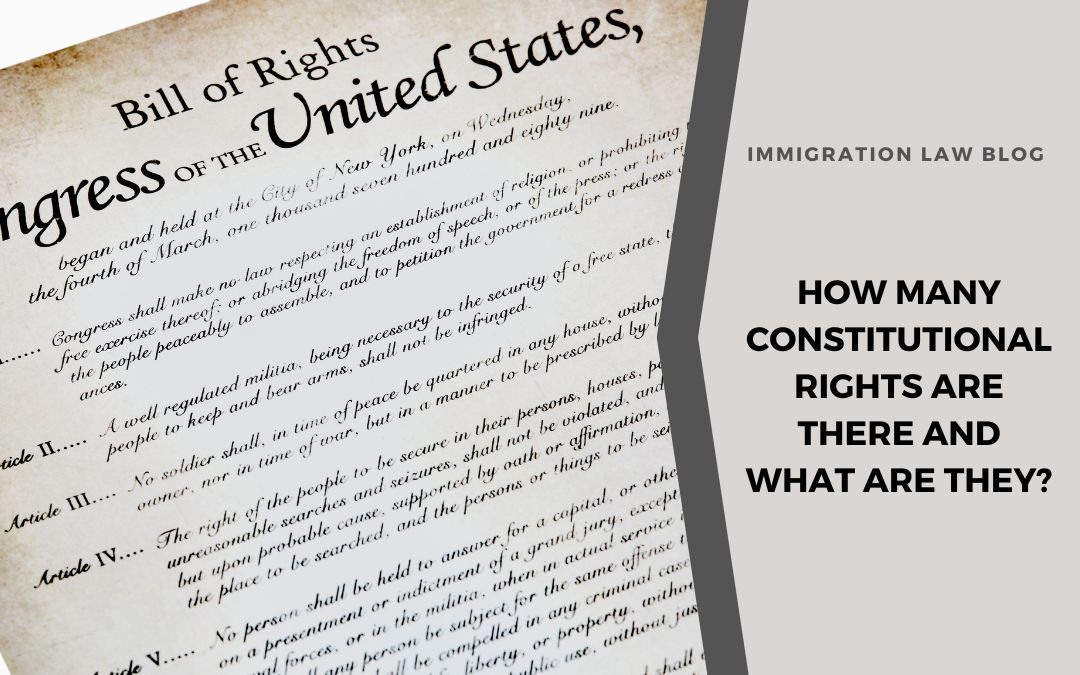Constitutional rights encompass protections and liberties guaranteed by the U.S. Constitution. Several are declared or implied in the constitution itself. Amendments to the Consultation outline and clarify additional rights. The first 10 are outlined in the Bill of Rights, with 17 more currently in place (total of 27 amendments).
Even though many of these rights are expressly stated, their scope and proper implementation remains the subject of debate. As such, a large quantity of case law revolving around the application of constitutional rights has developed.
Additionally, not all constitutional rights are explicitly stated. Some are implied, such as the right to privacy.
- First Amendment: Protects the freedom of speech, religion, press, assembly, and the right to petition the government.
- Second Amendment: Ensures the right of individuals to keep and bear arms.
- Third Amendment: Prohibits the government from quartering troops in private homes during peacetime without the owner’s consent.
- Fourth Amendment: Guards against unreasonable searches and seizures and requires warrants to be issued based on probable cause.
- Fifth Amendment: Protects individuals from self-incrimination, double jeopardy, and guarantees due process of law.
- Sixth Amendment: Establishes the right to a fair and speedy trial, the right to confront witnesses, and the right to legal counsel.
- Seventh Amendment: Preserves the right to a jury trial in civil cases involving more than $20.
- Eighth Amendment: Prohibits cruel and unusual punishment and excessive bail or fines.
- Ninth Amendment: States that the enumeration of certain rights in the Constitution does not deny other rights retained by the people.
- Tenth Amendment: Reserves powers not delegated to the federal government to the states or the people.
- Eleventh Amendment: Restricts lawsuits against states by citizens of other states or foreign countries.
- Twelfth Amendment: Provides the procedure for electing the President and Vice President through the Electoral College.
- Thirteenth Amendment: Abolishes slavery and involuntary servitude, except as punishment for a crime.
- Fourteenth Amendment: Grants citizenship to all persons born or naturalized in the United States, and guarantees equal protection of the laws.
- Fifteenth Amendment: Prohibits the denial of voting rights based on race, color, or previous condition of servitude.
- Sixteenth Amendment: Authorizes the federal government to impose income taxes.
- Seventeenth Amendment: Establishes the direct election of Senators by the people of each state.
- Eighteenth Amendment: Prohibited the manufacture, sale, and transportation of alcoholic beverages (repealed by the Twenty-First Amendment). Prohibition!
- Nineteenth Amendment: Grants women the right to vote.
- Twentieth Amendment: Sets the dates for the beginning and end of presidential and congressional terms.
- Twenty-First Amendment: Repeals the Eighteenth Amendment, allowing for the legal sale and consumption of alcoholic beverages.
- Twenty-Second Amendment: Limits the President to two terms in office.
- Twenty-Third Amendment: Grants residents of Washington, D.C., the right to vote in presidential elections.
- Twenty-Fourth Amendment: Prohibits the use of poll taxes as a requirement for voting.
- Twenty-Fifth Amendment: Establishes procedures for presidential succession, disability, and filling a vice presidential vacancy.
- Twenty-Sixth Amendment: Lowers the voting age to 18.
- Twenty-Seventh Amendment: Places limits on Congress’s ability to give itself pay raises, with any changes taking effect in the next Congress.
These amendments collectively constitute the Bill of Rights (Amendments 1-10) and subsequent amendments that have been added over time to address various issues and expand individual rights and governmental processes.

